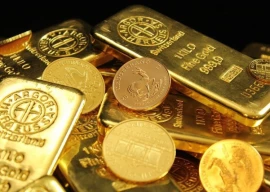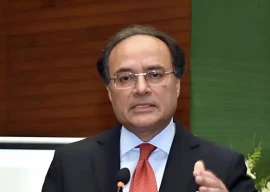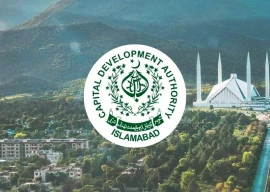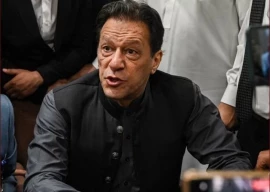
Fertiliser dealers are likely to have pocketed Rs14 billion because of a wide difference between prices of imported commodity and local produce and to check this trend a proposal has been floated for increasing the sale price of imported urea to reduce the gap.
Sources told The Express Tribune that the finance ministry and the Planning Commission came up with a proposal for an increase in the price of imported urea to narrow the gap with local produce and avoid misuse of subsidy by the dealers. However, the Food Security and Research Division opposed the proposal, saying it would raise urea prices.
In a meeting on fertiliser prices held in the second week of February at the Ministry of Industries, representatives of the fertiliser industry strongly took up the case of growers, saying they were being denied the benefit of subsidy.
They alleged that unscrupulous elements were manipulating the price difference by re-packing the imported urea to show as domestic fertiliser and were pocketing the difference of Rs490 to Rs500 per bag. No one from the ministries concerned challenged it.
The country imported one million tons of urea in 2011 and a further 0.5 million tons in January this year. This urea is being provided to the dealers at Rs1,300 per bag against actual price of Rs3,198, but growers are getting the commodity at Rs1,800.
The government has spent $784 million on urea imports and total subsidy on imported urea stands at Rs55 billion.
According to minutes of the meeting chaired by the industries secretary, the finance ministry’s joint secretary suggested that there should only be a price difference of Rs50 per bag between domestic and imported urea, which was supported by the representative of Punjab.
A representative of the Planning Commission also endorsed the proposal, saying the sale price of imported urea should be increased. But Food Security and Research Division’s joint secretary said any increase in the imported urea price at this stage would adversely affect the farmers.
Highlighting the causes of price increase, a Fauji Fertiliser Company (FFC) representative said that since May 2010 the rise in domestic urea prices had been caused by gas curtailment, imposition of general sales tax, gas infrastructure development cess and increase in gas prices.
He suggested that the price increase could be reversed by restoring gas supply and withdrawal of sales tax and development cess.
A representative of Engro said the company’s new $1.1 billion plant had not received gas for 200 days, which was a massive loss to the highly efficient plant. In May 2010, the fertiliser manufacturers had been assured that they would only face gas curtailment by October 2010 but the situation worsened and the producers suffered.
However, he said in the Kharif sowing season beginning April, sufficient stocks of urea would be available and there would be no need for imports.
He pointed out that by the year 2008, the private sector was importing urea with a difference of Rs20 between prices of imported and domestic urea. “Prices will only come down if taxes are withdrawn,” he added. A representative of Dawood Chemicals said fertiliser plants that were connected with the Sui Northern Gas Pipeline network were suffering massive losses because of heavy gas curtailment. He was also of the view that the price difference between domestic and imported urea was too high, which should be minimised.
Published in The Express Tribune, February 26th, 2012.
COMMENTS (2)
Comments are moderated and generally will be posted if they are on-topic and not abusive.
For more information, please see our Comments FAQ














1733421998-0/New-Project-(1)1733421998-0-270x192.webp)








Zafar Bhutta - Your reporting is erroneous.
The price of imported urea is 2,198 (maybe) but definitely not 3,198. You should check internationally published prices before sensationalizing.
And on a seperate note... your editor should be a bit more discerning. You mention the import bill to PK in dollars and then subsidy in Rs. Fine that is the way they are allocated (import in dollars and subsidy in Rs.) but you should give an apples with apples comparison.
This is for the CCP to deal with. What are they doing?!